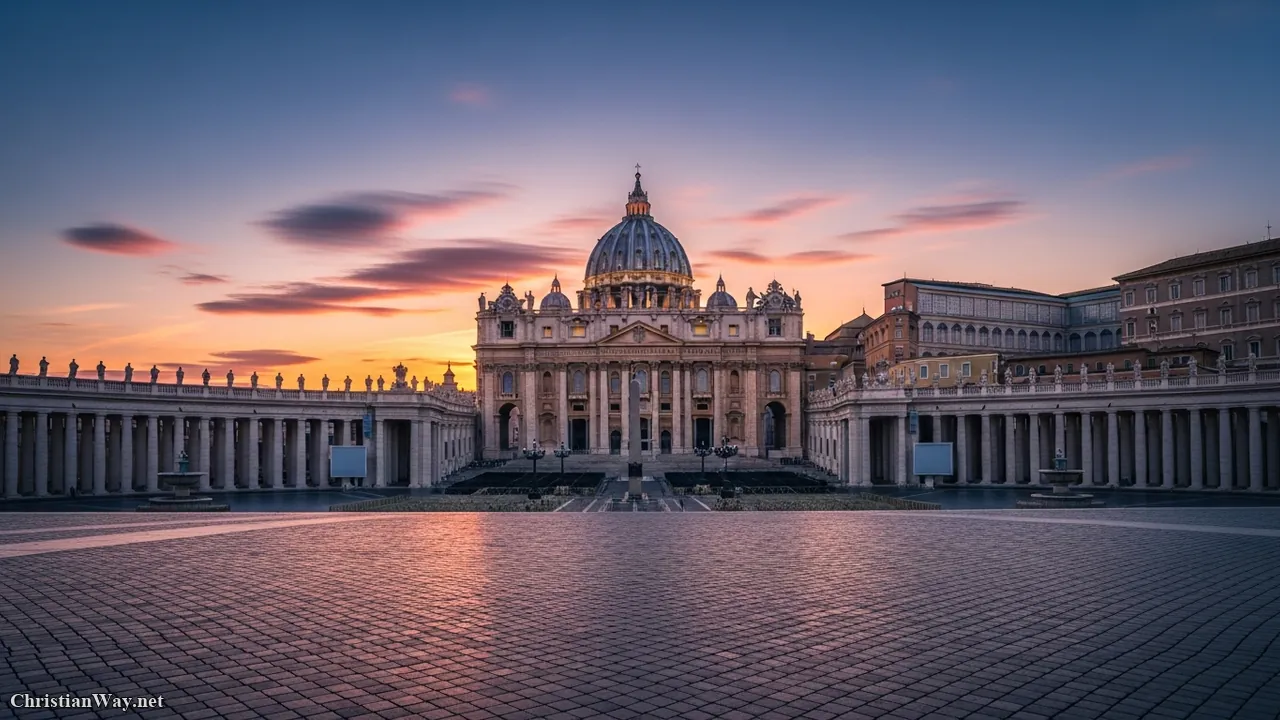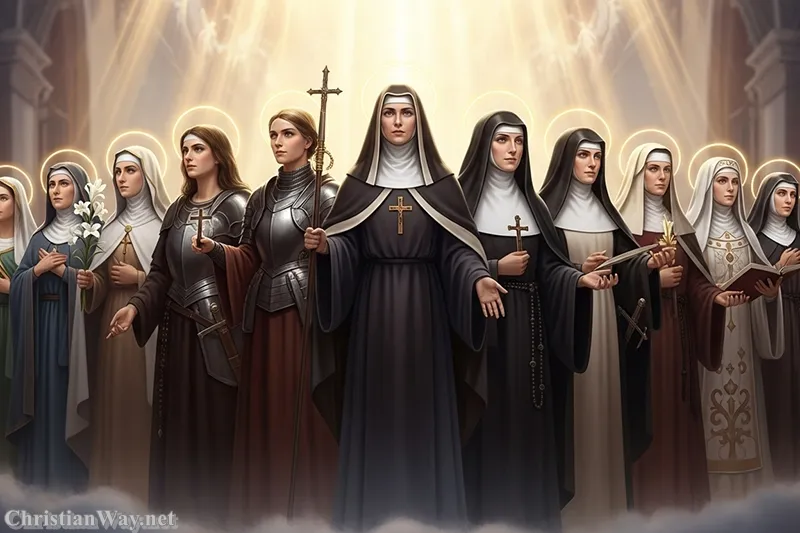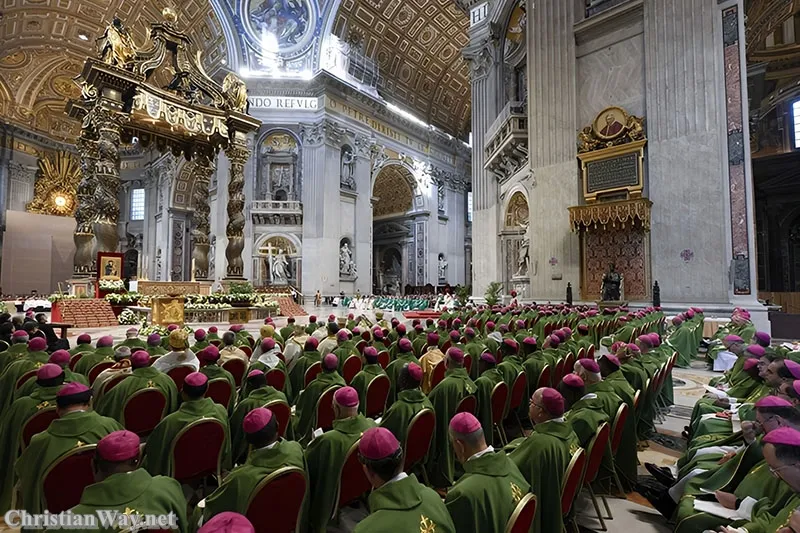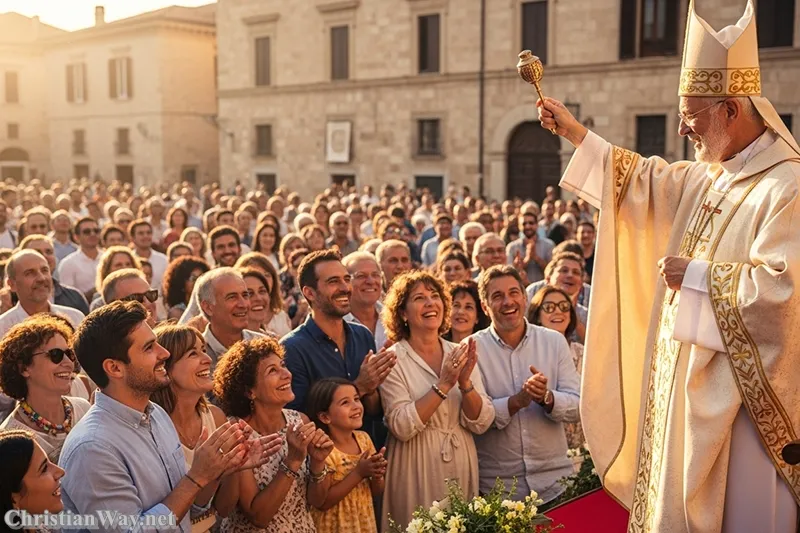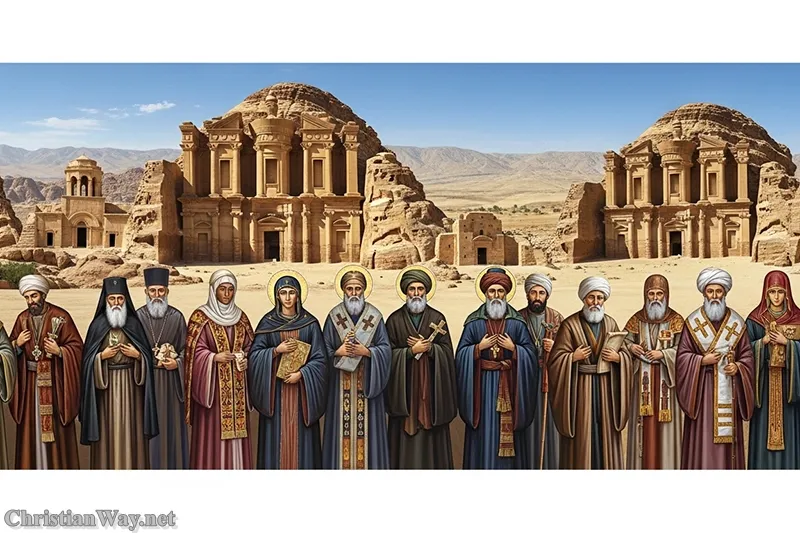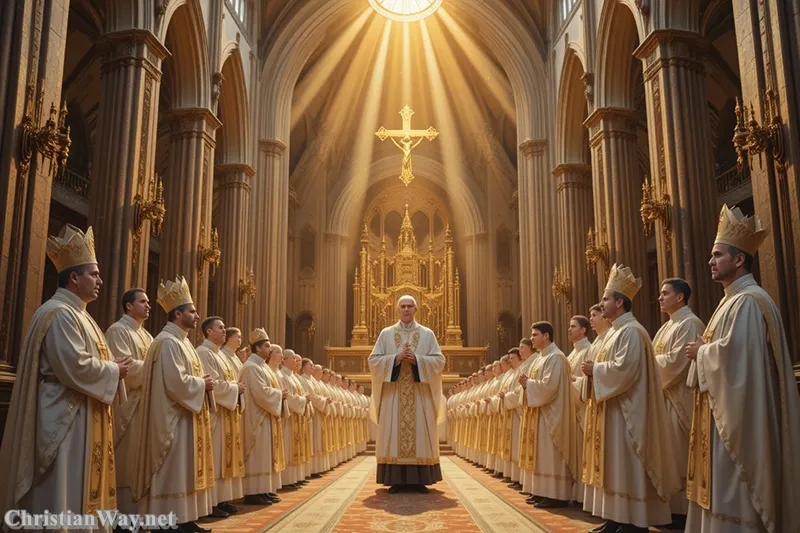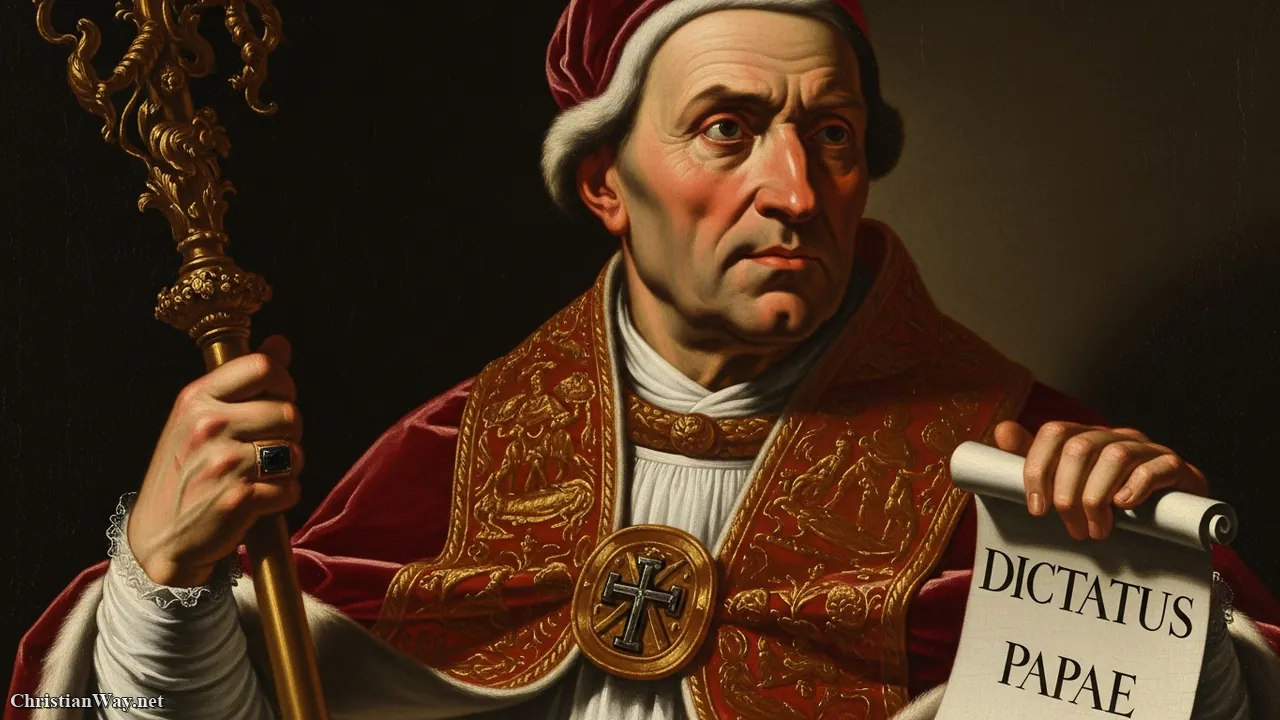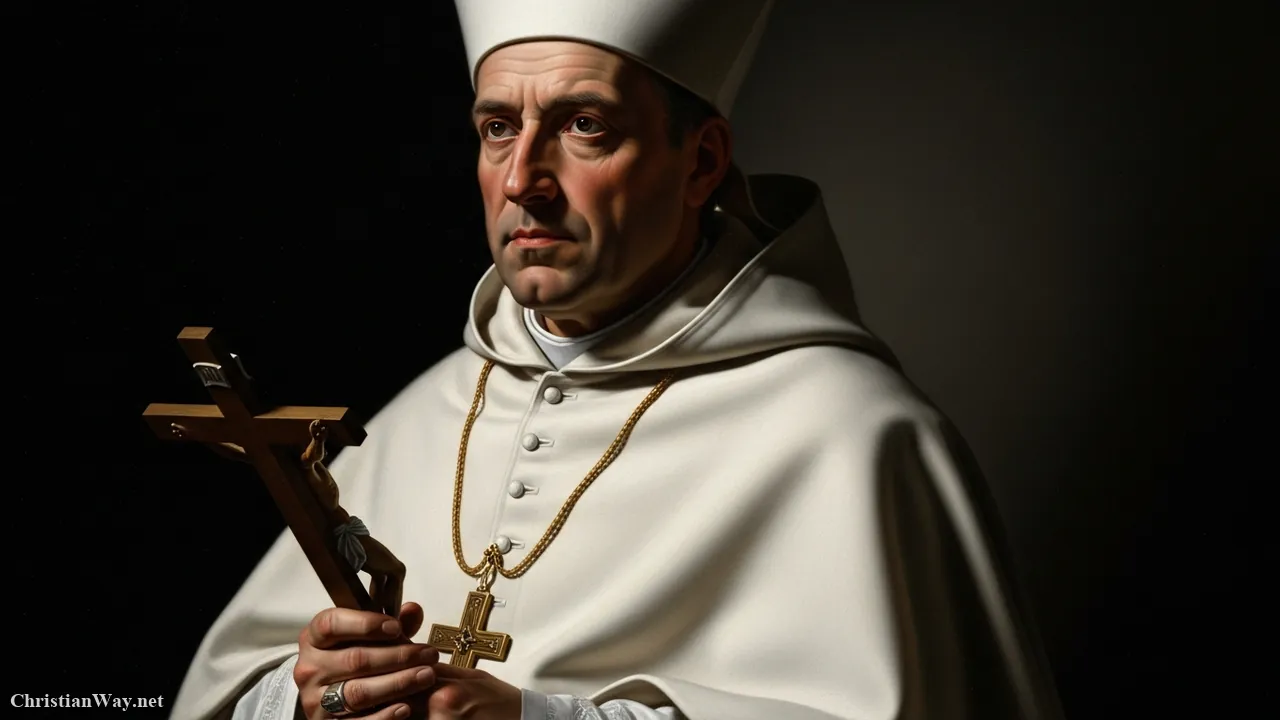Dear friends in Christ,
Every age of the Church has known shepherds who have carried the weight of Peter’s mantle — men chosen to guide, correct, and comfort the Body of Christ on earth. To be pope is to walk in the footsteps of Saint Peter himself, the fisherman called by Jesus to “feed My sheep.” And yet, among the many who have served as the Bishop of Rome, only a few have been canonized as saints.
These popes who became saints remind us that leadership in the Church is never about power or prestige, but about sacrifice, love, and holiness. The papal office is a call not only to govern but to die to oneself for the sake of Christ’s flock. Many of these men were martyred, some were exiled, and others were misunderstood in their own time. Yet their sanctity continues to shine across centuries, testifying that divine grace can flourish even under the heaviest responsibilities.
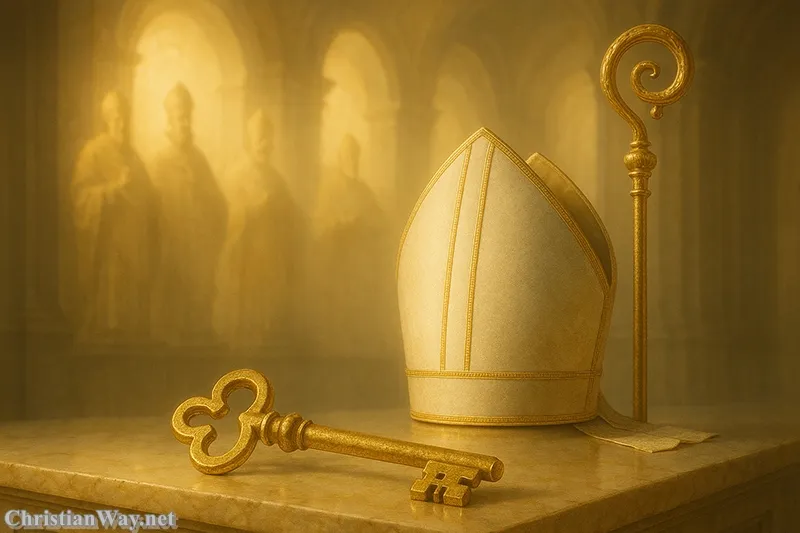
In this article, we will reflect on their spiritual legacy, explore how holiness shaped their papacy, and honor the long list of saint popes whose lives remain a mirror of the Gospel.
✝️ The Early Martyr Popes (1st–4th Centuries)
The story of the papacy begins not in palaces but in catacombs — in a persecuted Church hidden beneath the soil of Rome. From Saint Peter to Saint Sylvester, the early popes led with courage and blood. Their sanctity was often sealed with martyrdom.
Saint Peter – The First Pope and Martyr
The first among the apostles, Peter was called by Christ from the shores of Galilee and entrusted with the keys of the Kingdom. His faith was tested, purified, and crowned by martyrdom in Rome. Peter reminds every pope — and every Christian — that holiness begins with humility: “Lord, you know that I love you.”
Saint Clement I – A Voice from the Apostolic Age
Clement’s letter to the Corinthians still survives today — a powerful witness of early Church unity. He spoke not as a ruler but as a father, urging believers toward peace and repentance. His writings reflect the living continuity between the apostles and the papal office.
Saint Fabian and Saint Cornelius – Shepherds of Mercy
Saint Fabian was chosen pope by divine sign — a dove descended upon him during election. Saint Cornelius, meanwhile, faced schism and persecution, defending mercy for the lapsed during the Decian persecutions. Their lives prove that the holiness of a pope is measured not by strength, but by compassion.
As persecutions raged, the Church saw martyr after martyr occupy the See of Peter. These were not administrators, but witnesses who poured out their blood for Christ.
🕊️ Complete List of Canonized Popes
Below is the full list of 82 canonized popes, honored by the Church for their heroic virtue and fidelity to Christ.
1st–4th Centuries (Era of Martyrs and Confessors):
- Saint Peter (c. 1–64)
- Saint Linus (67–76)
- Saint Anacletus (Cletus) (76–88)
- Saint Clement I (88–97)
- Saint Evaristus (97–105)
- Saint Alexander I (105–115)
- Saint Sixtus I (115–125)
- Saint Telesphorus (125–136)
- Saint Hyginus (136–140)
- Saint Pius I (140–155)
- Saint Anicetus (155–166)
- Saint Soter (166–175)
- Saint Eleutherius (175–189)
- Saint Victor I (189–199)
- Saint Zephyrinus (199–217)
- Saint Callixtus I (217–222)
- Saint Urban I (222–230)
- Saint Pontian (230–235)
- Saint Anterus (235–236)
- Saint Fabian (236–250)
- Saint Cornelius (251–253)
- Saint Lucius I (253–254)
- Saint Stephen I (254–257)
- Saint Sixtus II (257–258)
- Saint Dionysius (260–268)
- Saint Felix I (269–274)
- Saint Eutychian (275–283)
- Saint Caius (283–296)
- Saint Marcellinus (296–304)
- Saint Marcellus I (308–309)
- Saint Eusebius (309–310)
- Saint Miltiades (311–314)
- Saint Sylvester I (314–335)
5th–10th Centuries (Era of Fathers and Builders):
34. Saint Mark (336)
35. Saint Julius I (337–352)
36. Saint Damasus I (366–384)
37. Saint Siricius (384–399)
38. Saint Innocent I (401–417)
39. Saint Zosimus (417–418)
40. Saint Boniface I (418–422)
41. Saint Celestine I (422–432)
42. Saint Sixtus III (432–440)
43. Saint Leo I the Great (440–461)
44. Saint Hilary (461–468)
45. Saint Simplicius (468–483)
46. Saint Felix III (II) (483–492)
47. Saint Gelasius I (492–496)
48. Saint Symmachus (498–514)
49. Saint Hormisdas (514–523)
50. Saint John I (523–526)
51. Saint Felix IV (526–530)
52. Saint Agapetus I (535–536)
53. Saint Silverius (536–537)
54. Saint Gregory I the Great (590–604)
55. Saint Deusdedit (Adeodatus I) (615–618)
56. Saint Martin I (649–655)
57. Saint Eugene I (654–657)
58. Saint Vitalian (657–672)
59. Saint Agatho (678–681)
60. Saint Leo II (682–683)
61. Saint Benedict II (684–685)
62. Saint Sergius I (687–701)
63. Saint Gregory II (715–731)
64. Saint Gregory III (731–741)
65. Saint Zachary (741–752)
66. Saint Paul I (757–767)
67. Saint Leo III (795–816)
68. Saint Paschal I (817–824)
69. Saint Gregory IV (827–844)
70. Saint Leo IV (847–855)
71. Saint Nicholas I the Great (858–867)
72. Saint Adrian III (884–885)
11th–16th Centuries (Era of Reform and Renewal):
73. Saint Leo IX (1049–1054)
74. Saint Gregory VII (1073–1085)
75. Saint Urban II (1088–1099)
76. Saint Celestine V (1294)
77. Saint Pius V (1566–1572)
19th–21st Centuries (Modern Canonized Popes):
78. Saint Pius X (1903–1914)
79. Saint John XXIII (1958–1963)
80. Saint Paul VI (1963–1978)
81. Saint John Paul II (1978–2005)
82. Saint John I (523–526)
🕊️ The Age of Fathers and Reformers (5th–10th Centuries)
After the persecutions ended, the Church entered a new stage — one of doctrinal development and spiritual depth. The popes of this age were Fathers of the Church, defenders of orthodoxy, and architects of Christian civilization.
Saint Leo I the Great – The Voice of Orthodoxy
Leo the Great’s writings defended the truth of Christ’s two natures at the Council of Chalcedon. His Tome of Leo remains one of the foundational texts of Catholic Christology. His sanctity shone not in martyrdom, but in steadfast teaching and pastoral charity.
Saint Gregory the Great – The Servant of the Servants of God
Few popes shaped the world more profoundly than Saint Gregory I. Once a monk, Gregory brought Benedictine spirituality to the papacy. He called himself “Servus servorum Dei” — the Servant of the Servants of God — and this title has remained for all popes ever since. His writings on humility, pastoral care, and liturgy continue to nourish the Church today.
These popes remind us that holiness is found not only in suffering, but in service — in governing with compassion, teaching with clarity, and leading the people of God in prayer.
⚔️ The Medieval Saints and Defenders of the Church (11th–16th Centuries)
As Europe entered the Middle Ages, the papacy faced new challenges: corruption, wars, and struggles for independence from secular rulers. Yet in these centuries, saintly popes emerged to reform, renew, and defend the faith.
Saint Gregory VII – Defender of the Church’s Freedom
Gregory VII stood firm against emperors who sought to control the Church. He suffered exile and died in poverty, proclaiming, “I have loved justice and hated iniquity; therefore I die in exile.” His holiness lay in courage — in choosing fidelity to Christ over compromise with power.
Saint Urban II – The Pastor Who Called the Crusades
Urban II summoned the First Crusade not for conquest but to protect the holy places and the suffering faithful. In his time, holiness meant rallying Christian unity against despair.
Saint Celestine V – The Humble Hermit Pope
Celestine V, the reluctant hermit who accepted the papacy for a few months in 1294, embodied radical humility. He abdicated freely, recognizing his limits — a rare act of sanctity that the Church remembers as a sign of detachment and purity of heart.
Saint Pius V – The Pope of the Rosary
Saint Pius V implemented the reforms of the Council of Trent, unified the Roman liturgy, and promoted the Rosary. His faith was tested in times of crisis, yet through his intercession, the Christian world was delivered at Lepanto — a victory he attributed to Our Lady.
🌅 The Modern Canonized Popes (20th–21st Centuries)
In modern times, the Church witnessed an extraordinary renewal through popes whose holiness was both deeply human and profoundly missionary. These canonized popes show that sanctity remains the heartbeat of leadership in every age.
Saint Pius X – The Pope of the Eucharist
Saint Pius X invited the faithful to receive Holy Communion frequently and lowered the age for First Communion, believing that Jesus longs to dwell in every heart. His motto, “Restore all things in Christ,” captures his reforming spirit. He was a man of simple faith and deep pastoral love.
Saint John XXIII – The Pope of the Second Vatican Council
Known as “Good Pope John,” he opened the windows of the Church to the modern world. His warmth, humility, and humor revealed a heart utterly transparent to God. His holiness was visible in his gentleness — the kind that wins hearts without argument.
Saint Paul VI – The Bridge Builder
Paul VI continued and completed the Second Vatican Council, guiding the Church through turbulence with patience and prayer. His encyclical Humanae Vitae showed his courage to uphold truth in a time of confusion. His sanctity was one of endurance and fidelity.
Saint John Paul II – The Apostle of Mercy
John Paul II’s life was a living Gospel — a witness of forgiveness, courage, and boundless love. He survived assassination, forgave his attacker, and called the world to rediscover divine mercy. Millions saw in him a reflection of Christ’s compassion and strength. His canonization alongside John XXIII in 2014 remains one of the most significant spiritual moments of our time.
🕊️ What It Means That Popes Can Be Saints
To say that a pope can be a saint is not to say he was perfect. It is to say that God’s grace can transform even the most burdened of roles. Popes, like all Christians, are called to holiness — but theirs is a holiness shaped by responsibility, by the daily cross of leadership, and by the call to love the entire Church.
In them, we see the mystery of divine strength working through human weakness. Their sanctity was often hidden: in prayer at dawn, in tears over divisions, in the silent endurance of criticism. The papal office is not an escape from suffering but an immersion into it — a sharing in the agony and glory of Christ’s own ministry as Shepherd.
🌍 Holiness and Leadership in the Church Today
The legacy of these saint popes offers a challenge and a consolation for every generation. Holiness is not reserved for a few; it is the common vocation of all the baptized. Whether pope or parent, priest or student, each of us is invited to lead with love, to serve with humility, and to trust in God’s mercy.
Our world longs for leaders who, like the saint popes, are not afraid to kneel — leaders who pray, who forgive, who guide with tenderness rather than authority. The holiness of the papacy reminds us that every form of leadership in the Church must be rooted in prayer and sacrifice.
The saints who wore the Fisherman’s Ring did not become holy because they were popes. They became saints because, in their humanity, they allowed grace to take hold — and in doing so, they shepherded the world toward Christ.
🙏 Reflect and Pray
Dear friends, may the memory of these canonized popes awaken in us a renewed desire for holiness — not only in office, but in heart. Let us pray for our Holy Father today, that he may walk in the same spirit of truth and love that animated Saint Peter and all the holy popes who followed him.
“Shepherd the flock of God that is among you… not domineering over those in your charge, but being examples to the flock.”
— 1 Peter 5:2–3
May every Christian, inspired by their example, strive to live with courage, humility, and faith.
And may the Lord, who guided Saint Peter and his successors, guide us all on the path of holiness.
May the peace of Christ dwell richly in your heart, and may His love guide every step you take toward Him.
— Fr. John Matthew, for Christian Way
